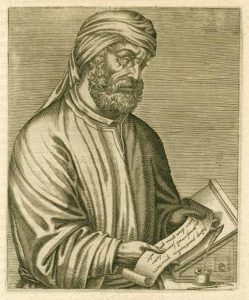The Department of Classics at Reading is delighted to welcome Prof. Rosalind Thomas to deliver its 12th Annual Ure Lecture. For this annual lecture, which celebrates the work of our first Professor of Classics, Prof. Percy N. Ure, we invite a preeminent scholar to deliver a public address on a topic of relevance to Percy Ure’s wide range of academic interests. This year Prof. Rosalind Thomas – Professor of Greek History, Dyson-Macgregor Fellow, Jowett Lecturer and Tutor in Ancient History at Balliol College, Oxford University – will deliver a talk entitled ‘Polycrates assigns a mother’: Greek Tyranny in proverb, collective memory and the local ‘polis histories’. The Greek tyrannies of the archaic period were the stuff of legend and folktale (or at least that dominates our literary sources), combined with narratives about their downfall fostered by the anti-tyrant feelings of later generations. Polycrates, tyrant of Samos (late 6th c.) was remembered through particularly vivid and colourful tales, vignettes and proverbs (as in the title), through which others were associated with cruelty and indulgent excess. It is hard to understand the social, political or economic impetus behind such tyrannies (Ure offered one famous theory), or to match the magnificence and building projects with the accounts later Greeks wanted to tell about them. This paper examines some of the most interesting accounts in the later ‘polis histories’ of their own local tyrant(s), and – with an eye to Herodotus and other comparisons – asks whether tyrants were an embarrassment or a paradoxical source of price generations later. It also examines what these later accounts might reveal about the collective memories of their archaic past, if not the archaic reality.
dominates our literary sources), combined with narratives about their downfall fostered by the anti-tyrant feelings of later generations. Polycrates, tyrant of Samos (late 6th c.) was remembered through particularly vivid and colourful tales, vignettes and proverbs (as in the title), through which others were associated with cruelty and indulgent excess. It is hard to understand the social, political or economic impetus behind such tyrannies (Ure offered one famous theory), or to match the magnificence and building projects with the accounts later Greeks wanted to tell about them. This paper examines some of the most interesting accounts in the later ‘polis histories’ of their own local tyrant(s), and – with an eye to Herodotus and other comparisons – asks whether tyrants were an embarrassment or a paradoxical source of price generations later. It also examines what these later accounts might reveal about the collective memories of their archaic past, if not the archaic reality.
The lecture will start be at 4pm on 25th January, in the Van Emden Theatre in the Edith Morley building, on the University of Reading Campus. All are welcome to join us for this public lecture but please register in advance at https://www.store.reading.ac.uk/conferences-and-events/faculty-of-arts-humanities-social-science/dept-of-classics/12th-annual-percy-ure-lecture. For any further questions, please contact Prof. Amy C. Smith, Joint Head of Department.





